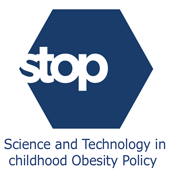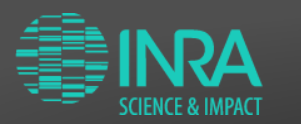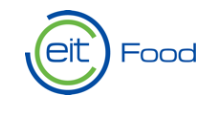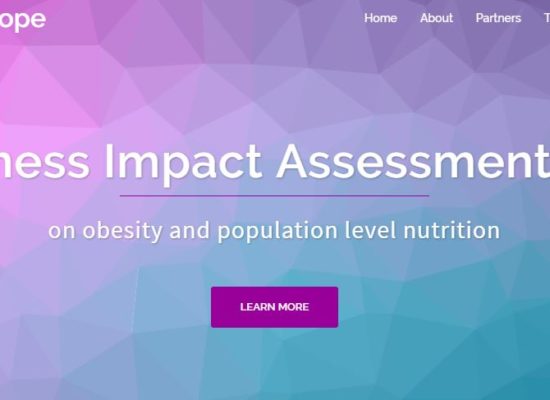Unhealthy diets and obesity are leading contributors to poor health in Europe. This has a high cost to the economy, including large impacts on the health care system and productivity.
The food industry has an important role to play in addressing obesity and improving population diets
Tackling obesity and improving population diets requires a comprehensive societal response, including government policies, community support, and wide-scale action from the food industry. The World Health Organization (WHO) has identified a number of actions that the food industry can take to improve population nutrition and create healthier food environments, including limiting the levels of salt, free sugars, saturated fat, and trans fat in products; ensuring that healthy and nutritious choices are available and affordable to all consumers; practicing responsible marketing of foods high in salt, free sugars, and saturated fats, especially to children; and providing consumers with clear, easily understood, and evidence-based nutrition information on food labels.
Benchmarking company nutrition policies, commitments, disclosure and performance
In a first phase, this initiative, part of the Horizon 2020-funded STOP project, will assess the largest European food companies on their policies and commitments related to obesity prevention and nutrition, across three major food industry sectors: supermarkets, food and beverage manufacturers, and quick service restaurants. The objective is to highlight where food companies are demonstrating leadership in relation to obesity prevention and nutrition, and identify areas for improvement.
In a second phase performance of companies will also be measured and the tool will be applied at the national level in different European countries.
It is anticipated some first results will become available from 2020 onwards.
The research team
This study is conducted by researchers within Sciensano (Brussels) and INRA (Paris) and is part of a larger European project on Science and Technology in Childhood Obesity Prevention (STOP) led by Imperial College London. The project forms part of INFORMAS (International Network for Food and Obesity/NCDs Research, Monitoring and Action Support), a global network of public-interest organisations and researchers that seeks to monitor and benchmark public and private sector actions to create healthy food environments and reduce obesity and non-communicable diseases (NCDs) globally. INFORMAS is coordinated by the University of Auckland.
The project team is led by Dr Stefanie Vandevijvere and Iris Van Dam is conducting a PhD on this topic. Oversight and expert guidance is provided by a steering committee that includes Dr Franco Sassi, Dr Olivier Allais, Professor Boyd Swinburn, Dr Gary Sacks and Thorsten Koenig.





Business Impact Assessment
The BIA-Obesity (Business Impact Assessment - Obesity and population nutrition) tool has been developed by INFORMAS, a global network of public health researchers that monitors food environments and policies in >30 countries worldwide. The tool consists of a range of indicators across 6 action domains. Indicators are sector-specific and are tailored for the purposes of this project to the European context.
Corporate population nutrition strategy
Company’s overarching commitment to improving population nutrition for reducing obesity and NCDs
Relationships with external organisations
Details of policies related to funding and/or support provided to professional organisations, external research, community groups, nutrition education and active lifestyle programs, government agencies
Production formulation
Policies regarding product development and reformulation, particularly regarding nutrients of concern (salt, saturated fat, trans fat, added sugar)
Product labelling
Disclosure and presentation of nutrient information, including ingredients lists, product labelling, health and nutrition claims and online nutrition information
Product and brand promotion
Policies regarding reducing the exposure of children to unhealthy food promotion
Product accessibility
Policies related to the pricing and affordability of healthy compared to unhealthy products and availability of healthy compared to unhealthy products
The process
These methods were adapted from the Access to Nutrition Index (ATNI) that benchmarks the nutrition-related commitments, performance and disclosure practices of global food and beverage manufacturers.
The project team will work closely with each company to collate relevant policy details related to each indicator, including details at a country-, regional- and global-level as applicable. Input from representatives nominated by each company will assist in identifying the most up to date, accurate and comprehensive information.
The process will result in the development of scorecards for each company to enable comparison at a sector level both nationally and internationally. The project will clearly highlight areas in which companies are demonstrating leadership in the prevention of NCDs, and indicate specific areas for improvement at a company, sector and industry level.
The intention is to repeat this process on a regular basis and thus to track progress over time. Some first findings are expected to become available by 2020, and will be communicated broadly as part of efforts to increase awareness and accountability.
-
Step one
Select companies for inclusion in the BIA-Obesity assessment
-
Step two
Collect preliminary data (from publicly-available sources) related to each indicator for all selected companies
-
Step three
Liaise with company representatives to refine and supplement policy information
-
Step four
Assess each company using the BIA-Obesity assessment criteria
-
Step five
Prepare prioritised recommendations for each company
-
Step six
Privately feed results back to each company along with company scorecard and benchmarking against other companies in the same sector
-
Step seven
Publicly release results, including individual company and industry sector performance
Latest news
BIA Obesity website launched!
The BIA Obesity website will showcase information related to healthy food and food choice environments, as part of the STOP project. It will provide information on the polices and commitments […]









